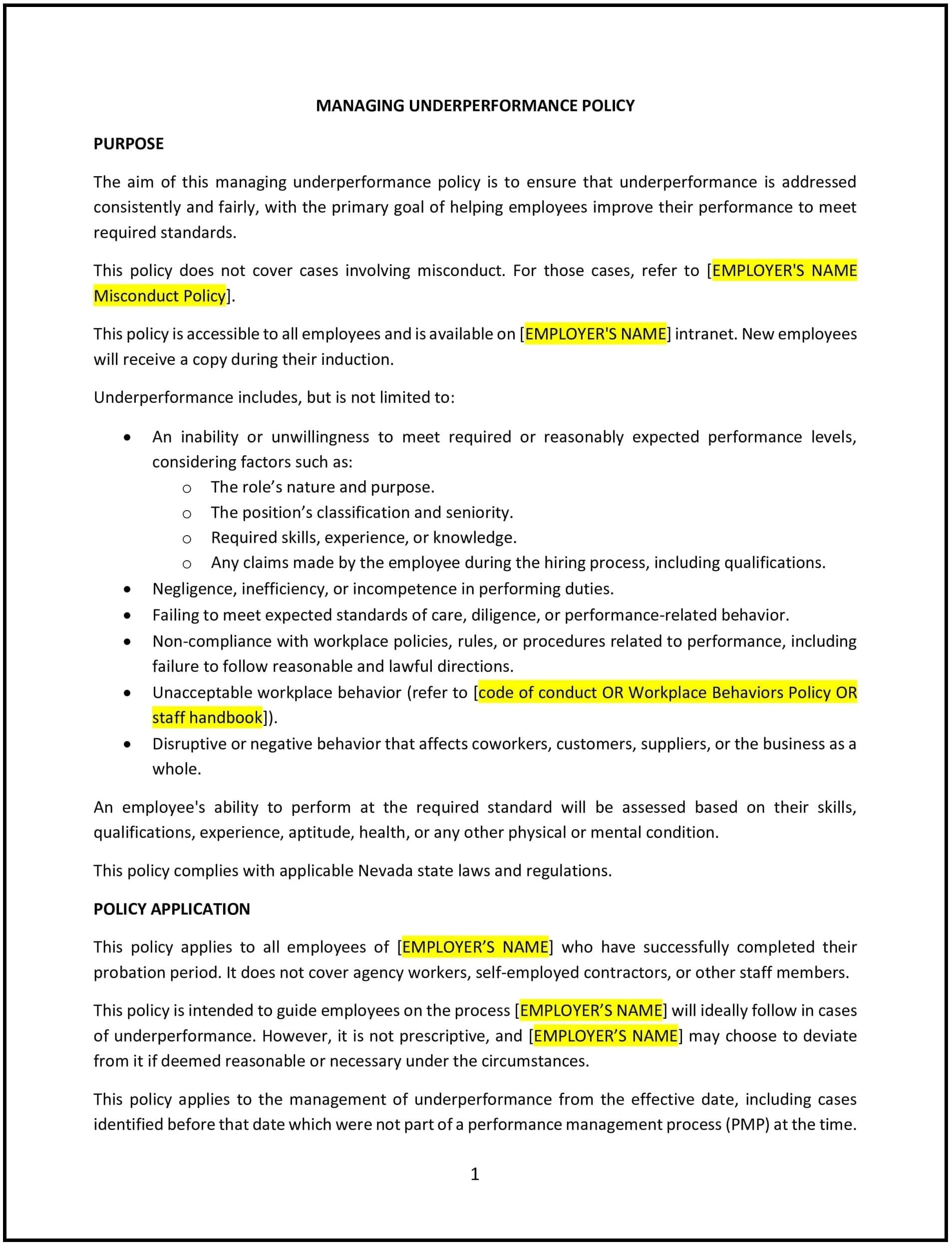Managing underperformance policy (Nevada): Free template
Got contracts to review? While you're here for policies, let Cobrief make contract review effortless—start your free review now.

Customize this template for free
Managing underperformance policy (Nevada)
This managing underperformance policy is designed to help Nevada businesses address and resolve employee performance issues fairly and effectively. It provides a structured approach to identifying underperformance, offering support for improvement, and ensuring transparency in managing expectations.
By adopting this policy, businesses can foster a culture of accountability, improve employee performance, and maintain a productive work environment.
How to use this managing underperformance policy (Nevada)
- Identify underperformance: Define clear performance expectations and use measurable criteria to identify when an employee is not meeting the required standards.
- Document performance issues: Record specific instances of underperformance, including dates, tasks, and any feedback provided to the employee.
- Conduct performance discussions: Schedule private meetings with the employee to discuss performance concerns, providing clear examples and expectations for improvement.
- Create a performance improvement plan (PIP): Develop a structured plan outlining specific goals, timelines, and resources to support the employee in addressing performance gaps.
- Offer training and support: Provide necessary resources, such as additional training, coaching, or mentoring, to help the employee improve.
- Monitor progress: Regularly review the employee’s performance against the PIP goals and provide ongoing feedback to track progress.
- Take appropriate action: If the employee fails to improve after completing the PIP, consider next steps, such as reassignment, disciplinary action, or termination, in line with company policies and Nevada labor laws.
Benefits of using this managing underperformance policy (Nevada)
This policy provides several benefits for Nevada businesses:
- Encourages accountability: Holds employees responsible for meeting performance expectations while offering a fair opportunity for improvement.
- Improves productivity: Addresses performance issues proactively, helping employees reach their full potential and contributing to overall team success.
- Ensures fairness: Provides a consistent and transparent approach to managing underperformance, reducing potential biases.
- Reduces legal risks: Follows structured procedures to minimize the risk of claims related to wrongful termination or unfair treatment.
- Enhances workplace morale: Demonstrates a commitment to employee development and fairness, fostering a supportive work environment.
Tips for using this managing underperformance policy (Nevada)
- Communicate performance expectations: Clearly define and communicate job expectations during onboarding and regular performance reviews.
- Address issues early: Raise concerns as soon as underperformance is identified to prevent issues from escalating.
- Focus on solutions: Emphasize improvement and development opportunities rather than solely pointing out faults.
- Document all steps: Maintain thorough records of performance discussions, feedback, and the implementation of PIPs for transparency and compliance.
- Seek legal advice if needed: Consult legal counsel before taking significant actions, such as termination, to improve compliance with Nevada employment laws.